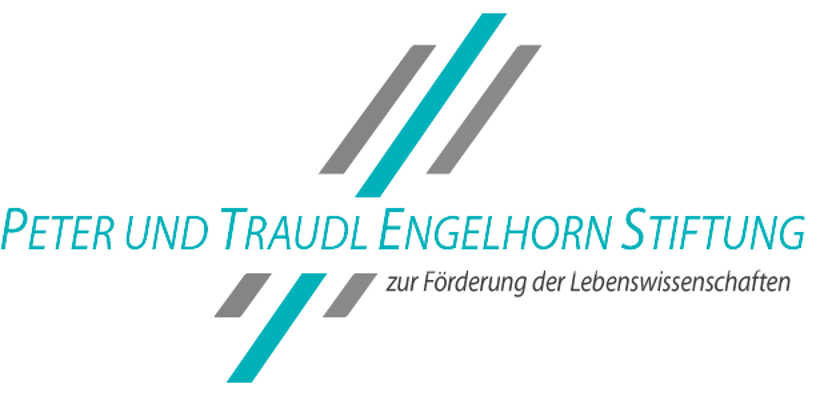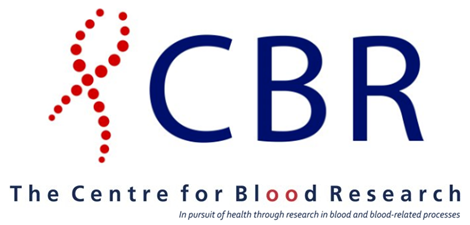Lab presentation
The Synthetic Structural Biology Lab is headed by Ulrich Eckhard, a Ramon y Cajal Research Investigator (2022-2027) and Junior Group Leader at the IBMB-CSIC, and we welcome Erasmus+, Bachelor,l and Master students for working with us in the fields of Molecular Biochemistry, Synthetic Microbiology, and Structural Biotechnology. Please get in touch! Similarly, if you are interested in applying for competitive third-party funding for PhD and post-doc projects, please contact us.
Our group is dedicated to the understanding the structural basis of proteolytic flagellins, their biological role in biofilm remodeling and pathogenesis, and how they impact the life style of the respective bacteria. Likewise, we are interested in reprogramming naturally occurring structural flagellins to encode for enzymatic units, and to use these augmented bacteria for biotechnological applications.
More to come in the near future!
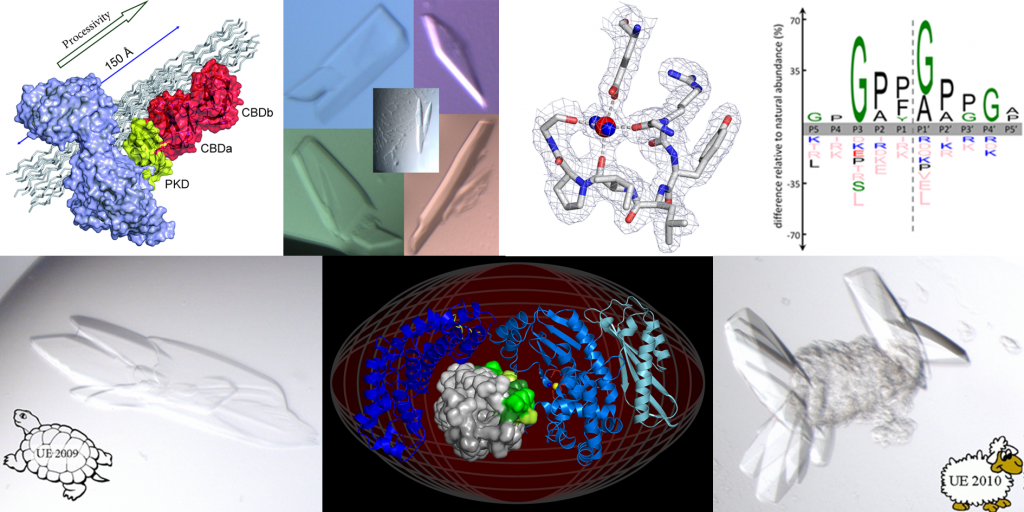
Projects
PROTEOLYTYC FLAGELLINS IN BIOFILM REMODELING AND PATHOGENICITY
(Lead by Ulrich Eckhard)
Bacterial flagella represent membrane-bound protein nanomachines that drive bacterial motility. Its flagellum is built by the self-polymerization of thousands of flagellin molecules, which are composed of two distinct domains: a highly conserved N- and C-terminal coiled-coil domain that forms the core of the filament, and a central hypervariable region (HVR) of high sequence diversity that builds the filament surface. In 2017, we identified a new class of flagellins which harbored a unique metallopeptidase domain within their HVR, and termed them proteolytic flagellins (Eckhard et al. 2017, Nature Communications). In C. haemolyticum, these flagellinolysins represent the second most abundant protein component of purified filaments, and we could show proteolytic activity for both recombinant protein and purified flagella. However, biochemical and structural information is scarce, and the biological role of flagellum-mediated proteolysis in both biofilm remodeling and pathogenicity is ill-defined.
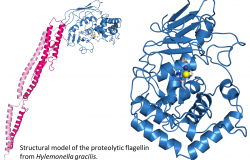
FLAGELLAR DISPLAY IN BIOTECHNOLOGY
(Lead by Ulrich Eckhard)
The bacterial flagellum is a highly sophisticated organelle primarily evolved for motility and harbors a long filament consisting of up to 30,000 subunits of the proteinicious building block flagellin. We aim to modify naturally occurring structural flagellins, and augment them with enzymatic functions to create dedicated nanomachines for biotechnology.
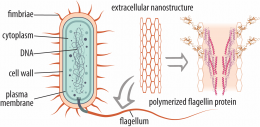
Lab people
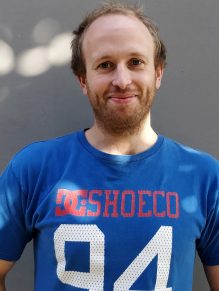
Ulrich Eckhard
Ulrich joined the IBMB-CSIC in 2019, supported by the Beatriu de Pinós COFUND program, and since fall 2022, he is a Ramon y Cajal Research Investigator and Junior Group Leader.
After his PhD with Prof. Hans Brandstetter at the University of Salzburg (2007–2011), where he focused on the enzymatic and structural characterization of bacterial collagenases, he joined the lab of Prof. Chris Overall at the University of British Columbia, funded by a post-doctoral fellowship from the Michael Smith Foundation for Health Research (MSFHR). In Vancouver, he mastered several proteomics-based techniques and critically contributed to many highly collaborative projects, including the profiling of various biomedically relevant protease families and elucidating proteolytic processing in health and disease. In 2016, he returned to Europe and joined the lab of Prof. Maria Selmer at Uppsala University to study enzyme promiscuity and protein evolution, including a highly active phage-encoded S-adenosyl methionine (SAM) lyase. Enabled by funding from the Peter and Traudl Engelhorn Foundation (PTES), he then returned to Salzburg to lead his independent project on flagella-embedded proteolysis. In October 2019, he joined the Proteolysis Lab of Prof. Xavier Gomis-Rüth, where he continued his research in structural biochemistry and where he is now developing his own research line at the interface of molecular biochemistry, synthetic microbiology, and structural biotechnology to develop functionalized flagellins for biomedicine and biotechnology.
Linkedin | ResearchGate | ORCiD | Twitter | CV
Students
Please click on the student’s name to access their Biosketch.
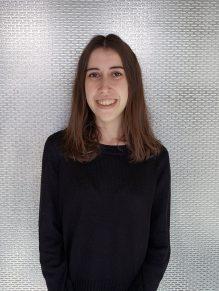
Enkela Bushi
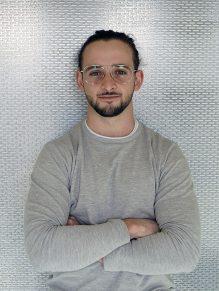
Oriol Capell Sandin
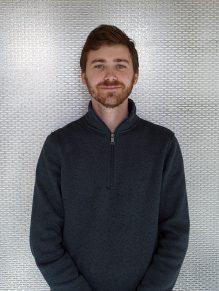
Bryan Hogg
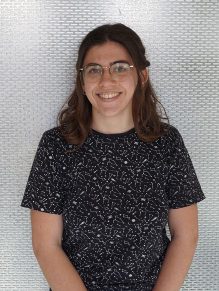
Eva Estevan Morió
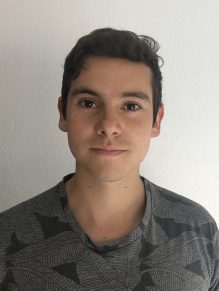
Juan Sebastián Ramírez Larrota
Past Students
Alea Radcke
Ariana Ivanić
Kawtar Ben Larbi
Mayra Loayza
Laura Garzón
Emma Bloch, University of Montpellier, France. Master Program work placement, 6 months. 2020
Camilla Winkler, RWTH Aachen. Erasmus+ internship, 6 months. 2019
Selected publications
Eckhard U*, Körschgen H*, von Wiegen N., Stöcker W, and Gomis-Rüth FX (2021).
Proc Natl Acad Sci USA, 118(14): e2023839118.
Eckhard U*, Bandukwala H*, Mansfield MJ*, Marino G, Cheng J, Wallace I, Holyoak T, Charles TC, Austin J, Overall CM, and Doxey AC (2017).
Nature Communications, 8(1):521.
Eckhard U*, Huesgen PF*, Schilling O*, Bellac CL, Butler GS, Cox JH, Dufour A, Goebeler V, Kappelhoff R, Auf dem Keller U, Klein T, Lange PF, Marino G, Morrison CJ, Prudova A, Rodriguez D, Starr AE, Wang Y, and Overall CM (2016).
Matrix Biology, 49:37-60.
Structure of collagenase G reveals a chew-and-digest mechanism of bacterial collagenolysis.
Eckhard U, Schönauer E, Nüss D, and Brandstetter H (2011). Structure of collagenase G reveals a chew-and-digest mechanism of bacterial collagenolysis.
Nature Structural & Molecular Biology, 18:10, 1109-1114.
Please refer to PubMed for a full and up-to-date publication record. A detailed CV can be obtained here: 09/2021; 10/2022.
Project funding
Current Funding
- Title: “Structural Biochemistry of Proteolytic Enzymes”
- Dates: from 01/09/2022 to 31/08/2027
- Principal Investigator: Ulrich Eckhard
Ayuda RYC2020-029773-I financiada por:

-
Title: “Redesigning bacterial flagella to harbor functional domains for biotechnology and biomedicine (Flagella 3.0)”
- Dates: from 01/09/2022 to 31/08/2025
- Principal Investigator: Ulrich Eckhard
Proyecto PID2021-128682OA-I00 financiado por:

-
Title: “Structural and Computational Biochemistry of Proteins (BIOSTROMP)”
- Consolidated Research Groups of Catalonia Grant, Generalitat of Catalonia.
- Reference: 2021SGR00423 (40,000 EUR)
- Dates: 2023-2025
- Coordinator: Prof. F. Xavier Gomis-Rüth
- Role: Co-PI (€10,000 EUR)

Past Funding
Vacancies/Jobs
Master students
We welcome Bachelor and Master students for working on their theses in the fields of Molecular Biochemistry and Structural Biotechnology with us. Please contact Ulrich Eckhard (ueccri@ibmb.csic) for more details or to arrange an interview.
For more information, please see here.


